Digitalization of Public Services
Debate on Digitalization: There is a Basis for Fully Electronic Services, but Much Remains to Be Done
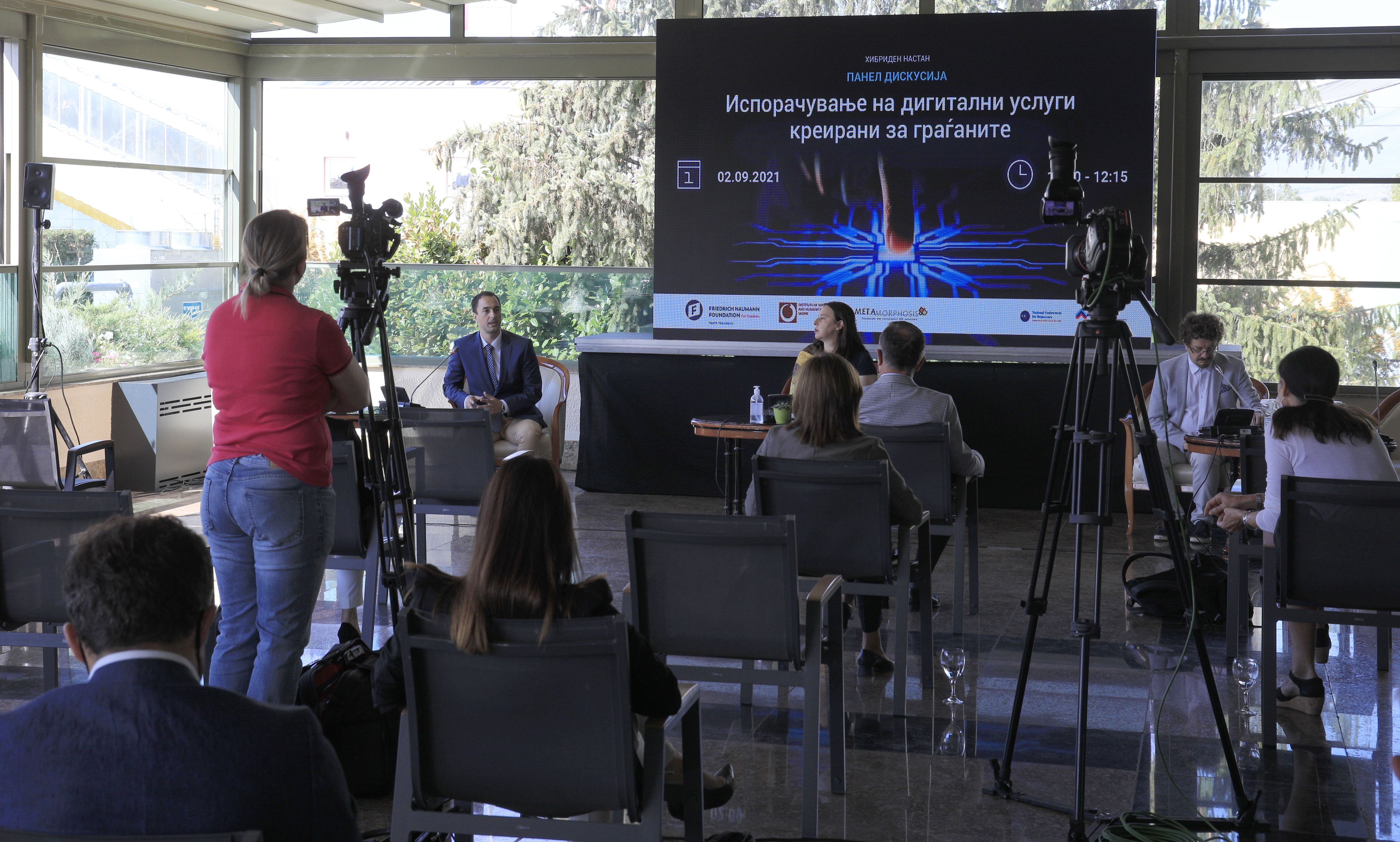
The provision of the proper technical and personnel solutions as well as the adoption of brave legal changes is necessary for the delivery of fully-fledged digital services in North Macedonia. Although the basis for digitalization has been laid, much remains to be done for its successful implementation and for it to become a real service to citizens. At the same time, great care must be taken to find solutions that are sustainable and fully functional, unlike some recent examples highlighted by the debate, “Delivering Digital Services Created for Citizens" where introduced digital services were either not available or were only partially implemented, meaning that citizens still have to go to the counter to get or submit physical documents.
The event was organised in a hybrid format by the Friedrich Naumann Foundation for Freedom in North Macedonia, the Metamorphosis Foundation for Internet and Society, and the Institute for Social Sciences and Humanities – Skopje on 2 September 2021. It brought together representatives of civil society working in the field of digital services and representatives of the Government to discuss what had been done so far, what were the mistakes that should not be repeated, and what were the best solutions to achieve the goal of providing quality digital services, as an integral part of the Government’s Digital Agenda. The last reflecting a major focus of the EU Digital Agenda.
The bitter story of digitalization in North Macedonia

“The topic is important for every country, because digitalization is not the future, but the present. When we talk about the digitalization of the government, of public services, we should know that it has a positive, direct effect not only on the functioning of the state, but on all social and economic processes. Any slowdown in this plan leads to a slowdown in all processes,” remarked Ivaylo Tsonev, Project Coordinator for Bulgaria and North Macedonia at the Friedrich Naumann Foundation for Freedom.
Qendresa Sulejmani, Programme Director of the Metamorphosis Foundation for Internet and Society, and Iskra Gerazova-Mujcin, a researcher at the Institute of Social Sciences and Humanities – Skopje, presented studies both on citizens’ experiences and requests for digital services, as well as the directions in which those services should direct the implementation of digitalization.
As Sulejmani pointed out, the survey of citizens about the provision of electronic services at municipal level found that it was more important for citizens to receive at least clear information in digital form, rather than to offer digital services that in reality still did not work well. Metamorphosis’s research covered 12 services.
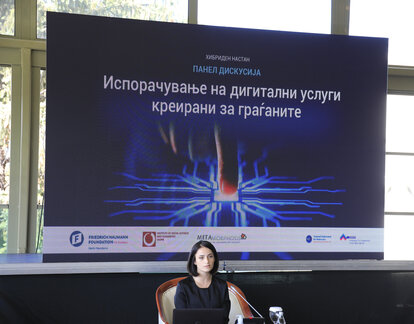
“The municipalities of Kriva Palanka and Delchevo are good examples of municipalities based in cities that offer up-to-date and stable digital services which citizens are satisfied with. In terms of municipalities based in villages, the Municipality of Debarca is a good example. It is interesting that 95% of the citizens we surveyed said that they were satisfied with clear information only, without receiving a full digital service, and that this was better than having services that were not stable, that is, they might be ideal, but were not well implemented. Such is the example of “See, report, fix”, which was a great solution, but municipalities stopped using it. It was a good example of how citizens lost confidence in e-services even before they fully existed,” explained Qendresa Sulejmani, presenting the research “Analysis of e-Services in the Municipalities in the Republic of North Macedonia”.
Iskra Gerazova-Mujcin, presented the research “Digitalization as a Path to True Citizen-oriented Administration: Decentralization of Processes as a Means of an Accelerated and Effective Reform”. As problematic aspect regarding the issue of the personal documentation online was highlighted that the administration either did not know or did not want to implement the laws, because citizens were still required to provide documents that the administration had to obtain ex officio.
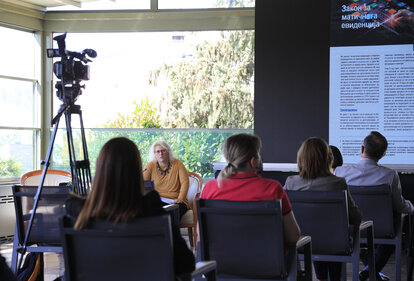
“We have researched the laws and by-laws that refer to personal documentation, and the first impression is that there are a lot of regulations that in some way burden citizens and are in favour of the administration. The Law on General and Administrative Procedures, in Article 63, states that accompanying documents for a service, if not submitted by citizens, will be procured by the institution. So, it states clearly that the institution can procure them, but requires them from the citizen. As for the laws on personal documentation, although since 2019 some of them have undergone changes and additions, none of them are in line with digitalization. In almost three years, none have been adapted,” said Gerazova-Mujcin.
Both equipment and software are essential, but also money
During the discussion, perceptions and recommendations for what had been done so far and what should be realized in the future were given by Zoran Dimitrovski, Deputy Minister for Local Self-Government, Ana Malceva-Marinkovic, Cabinet Officer for Coordination of the Cooperation of the Prime Minister with State Bodies, Public Enterprises, Institutions, Companies, Citizens’ Associations and Other Legal Entities, Iskra Belcheva-Ristovska, Programme Coordinator at the Centre for Change Management and Mila Josifovska-Danilovska, Manager of the Social Accountability and Human Rights Online Programme at the Metamorphosis Foundation for Internet and Society.
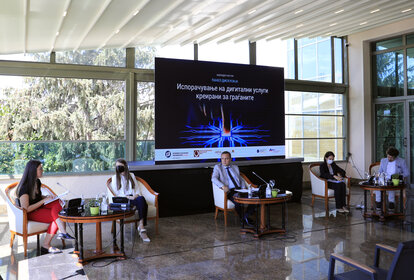
Deputy Minister Dimitrovski admitted the illogicalities in the current situation and shared that the government had set digitalization as a top priority gave. This gives optimism that challenges could be solved.
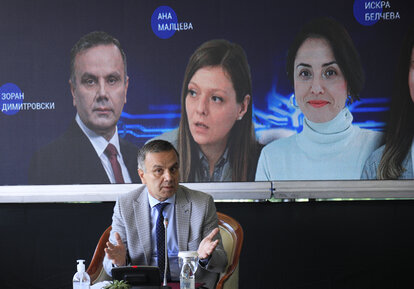
The Deputy Minister of Local Self-Government reported, “Before each Government session, there is an update on the level of implementation of the process. We are now talking about July 2022 as a final period of digital transformation. But we should also pay attention to this process as there are many challenges. …, The digitalization process must take into account sustainability, software support, public servants… The Government must do the budgeting right now in the Digital Agenda for hardware, software, management, as it all requires funds. Many municipalities complain that they can not enter the process of digitalization, because they do not have the finances and the government should consider block subsidies for that purpose.”
Ana Malceva-Marinkovic from the Prime Minister’s Office stressed that digitalization also contained elements of the fight against corruption, for a better and greener life for citizens, in terms of reducing the use of paper, and also in terms of the interests of citizens. Three working groups were currently working on the realization of the Digital Agenda, she said.

“We are currently making a digital replica of all our physical interactions, and what we especially had in mind when developing a new system was to avoid the principle of citizens having to roam on different digital platforms, and to have everything centralized at one point of communication. On December 16, 2019, we established the National Portal for Electronic Services, and it was promoted, but due to the epidemic, its use declined. Despite this, the Government currently has three working groups for digitalization: one for amending 150 laws, a working group of engineers coordinated by MISA and a third for digitalization of the judicial system. In terms of where we want to go as a country, July 2022 is undoubtedly the key date and I hope we will achieve our goals by then” said Malceva-Marinkovic.
The respect for the actual Law on Personal Data Protection was highlighted by Mila Josifoska-Danilovska from Metamorphosis as especially important, with regards to protecting the security and the rights of the citizens. The proper user-friendly and secure infrastructure is also crucial.
“A pre-condition for digitalization is to have prepared institutions that have the capacity to design, deliver, and promote digital services, as well as to support citizens in the process. At the same time, they must provide the necessary infrastructure for citizens to access digital services, including processes for those who do not have access to the Internet and digital devices at home. This could be done through local citizens’ support centres, the existing Internet clubs, or the “One point for services centres,” said Josifoska-Danilovska.
Source: Metamorphosis Foundation. The text is fully re-published from Meta.mk News Agency and the original text can be accessed here.
